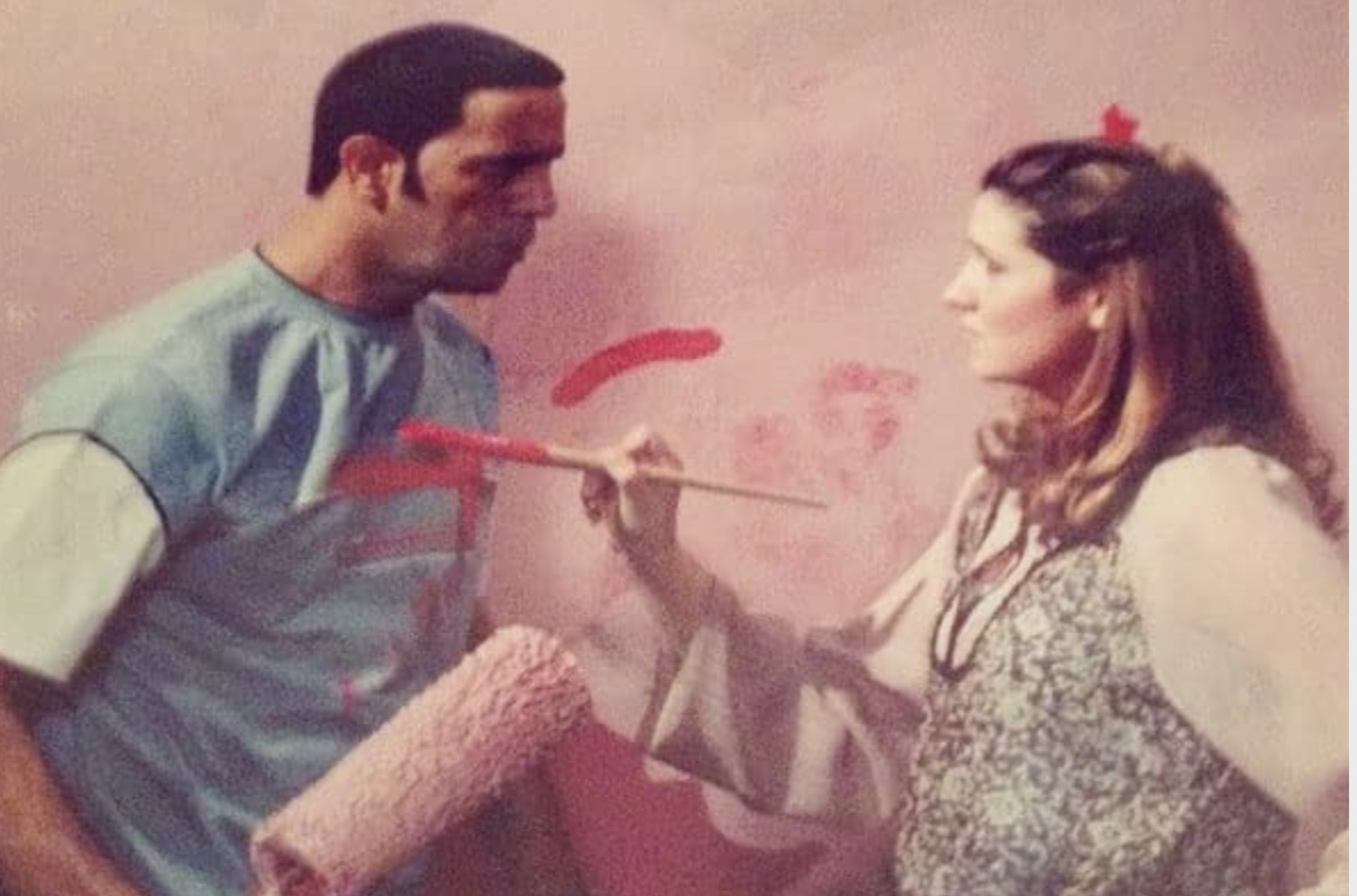I could only repeat ‘we’re just friends’ for a certain amount of time until it seemed like no one would ever believe me. In 2011, a YouTube video called ‘Why Men and Women Can’t be Friends’ raked 14 million views, and was shared widely on social media; it made a self-explanatory case. Platonic relationships are almost always ridiculed, masked with the ‘it’s complicated’ narrative, when sometimes, it is really not complicated.
By definition, platonic relationships are characereized by an absence of romance or sexual intimacy, coined after Plato’s ideal of non-sexual love. The main concept surrounding platonic relationships is that they are completely devoid of ulterior motives or intentions. But society has boxed and labeled friendships between men and women – it hard-wired us into thinking that it is impossible to have them.
I could never really pinpoint why every time I mentioned my male friends, Egyptian society – particularly my family members and female friends –would look at them as my potential partners. I would always be met with loaded questions about whether or not there was ‘something’ really going on between us: ‘so there is absolutely nothing going on between you two?’
As I said no with a half crooked smile for what seemed like the millionth time, I asked what the people around me thought: is it really impossible to have platonic relationships in Egypt?
Before delving into the topic and the answers, let me preface my hypothesis by saying that I believe our society holds romantic relationships to have higher value than other kinds of love. Other than your love for your family and partners, other – platonic – love is often undermined and undervalued. I say ‘we’re just friends’ as if friendships do not hold the same value as our romantic relationships.
Nay: the reservations and boundaries
Those who did not support the idea of platonic relationships explained that friendships between men and women sometimes do not work because one person ends up developing feelings for the other. Expectations do not always match up, so boundaries need to be set in order to avoid conflict.
Although I do agree with the need for boundaries, I think to myself, are boundaries not important in any relationship? For example, I make sure to draw boundaries between my partner and I when it comes to spending time with each other. My partner needs to understand that I need alone time to recharge, and that is a boundary I am strict about. So why can’t I do the same with my male friends? The same goes for my female friends; there is a mutual understanding of boundaries when it comes to joking about certain topics for example, and it’s something that has worked over time.
People tend to feel awkward when it comes to seeing people in platonic relationships between men and women, and they monitor with a suspicion microscope: “Is one gay? Are they secretly having an affair? There’s no way, they’re bound to have a physical relationship.” We have no societal framework for platonic friends the way we do with romantic partners.
The only societal framework we can refer back to in Egypt is depicted in same-sex friendships. Egyptian movies such as Banat West El Balad (West El Balad Girls, 2005), Ahla Al Awkat (Best Times, 2004), and Ashab Wala Business (Friends or Business, 2001) have all beautifully depicted the triumps ans trials in same-sex friendships. There is no reference we can go back to for platonic friendships between men and women.
Ay: those for all cases of friends
Those who responded to my queries said that they did believe that male-female friendships were possible, and explained that the reason these specific bonds are not easily accepted is because of the societal and cultural aspects.
Limitation in exposure to one another can often make women see men exclusively as potential partners, and vice versa. Alienation from the other gender can often create a false narrative to the relationship at hand. In Egypt, sex segregation is not uncommon in many aspects of society, there are certain schools that seperate boys and girls in different buildings and in places of worship as well. It is almost impossible for opposite sexes to sit alone, comfortably, in public spaces, because the public eye is cruel and judgmental.
The trouble with platonic friendships is not biological, explains psychologist Joel Block to the Washington Post, but societal.
“In our culture, we have overemphasized the separation of the sexes and the pursuit of sexual fulfillment” he says.
In the same way in Egypt, the opposite sex is alienated from a young age in schools, clubs, and organizations. IHugs and public displays of affection between opposite sexes are villainized, because only idea has been overly stressed: marriage as the ideal end goal.
“Men and women together in a bond of friendship are suspect. But in other societies, friendships are instituted between men and women and last a lifetime. This demonstrates that platonic friendships are not only possible but can even thrive if the practice is culturally encouraged.”
Could this also be the case in Egypt, a traditions-orientated country, where the joining of any man and woman is encapsulated within the possible narrative of an eventual marriage?
In my opinion, Egyptian society devalues the platonic and overvalues the romantic. It has reinstated in our minds that platonic equals unrequited, that one person is bound to fall for the other, or that it is pretense for the romantic.
Even in Egyptian, or Arab media in general, there is little to no exposure on platonic relationships. The end goal between men and women is always romantic love, alienating the possible existence of platonic love in the first place. Our favorite love stories are based on exciting plots between our favorite characters in shows and movies, but I never recall watching any Egyptian movie or show that really stressed on the importance of platonic relationships between men and women.
Ever since Cristina Yang told Meredith Grey on the hit American TV series Grey’s Anatomy, ‘you are my person,’ I’ve had a completely different view on love. My soulmate does not have to be my partner or my same-sex friend: my soulmate can be anyonoe who transcends all the hard-wiring and limitations that society has inflicted on us. Someone I truly love because there is a mutual relationship of understanding and appreciation to one another.
I do not know when, how, or if there ever will be a solution for the way our culture thinks and operates, but I do think it is up to every individual to seek relationships in whichever way aligns with their personal morals and values.
For what it’s worth, I think platonic relationships are the purest form of love – unconditional I might add – because they are based on loving the person for who they are, rather than what I am getting from them.
The opinions and ideas expressed in this article are the author’s and do not necessarily reflect the views of Egyptian Streets’ editorial team. To submit an opinion article, please email [email protected].
Subscribe to the Egyptian Streets’ weekly newsletter! Catch up on the latest news, arts & culture headlines, exclusive features and more stories that matter, delivered straight to your inbox by clicking here.







Comments (0)